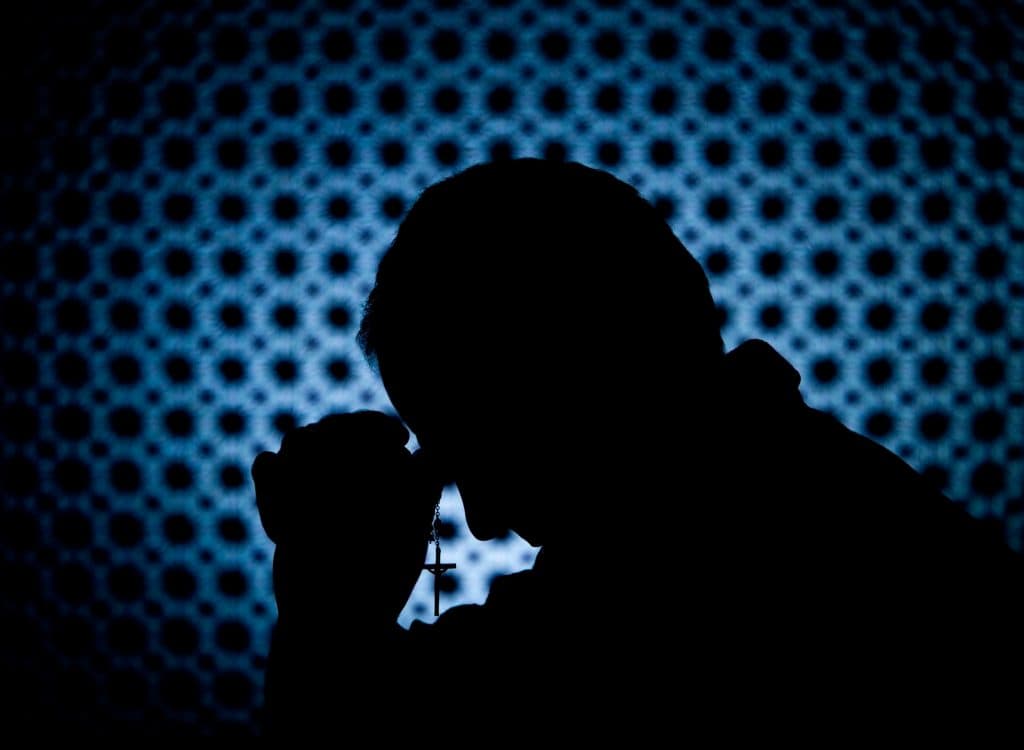I thrive when I have something that inspires and drives me. You know, something that puts some pep in your step, wakes you up early in the morning, or even sends you to bed early just to be rested to tackle what you get to do that next day.
I met someone who even applied a mission statement to their life to have a motivating reminder of their life’s focus and pursuit. For the Christian, our mission statement is found in our identity as a person, male or female.
The origins of our identity explained in the first chapters of the book of Genesis provide the motivational reminders we need to live each day well. Knowing our identity means we know our purpose. Knowing our purpose determines the way we act each day, including how we spend our time, who our friends are, and what we spend our money on.
When we don’t know our life’s purpose or forget our identity, it becomes so easy to engage in activities that compromise who we’ve been created to be. And for those caught in porn’s grip, I believe that the Theology of the Body can help you understand and remember your identity and purpose and help you put porn in your past.
The content you read here may include religious language from other denominations. Please don’t let this distract from the overall message. Covenant Eyes frequently writes from a Christian perspective (both Catholic and Protestant), but we work with those of various religious beliefs and those with no religious beliefs in the fight for human dignity. Thank you.
What is the Theology of the Body?
Some people may have heard of the Theology of the Body before, but there’s a good chance it’s new to many people. So let’s take a look at what the Theology of the Body actually is and how some of its main teachings can help you both reclaim your identity and put porn in your past.
The Theology of the Body is a fully integrated vision of the human person based on Scripture. Written and delivered by Pope John Paul II between 1979 and 1984, these 129 talks are now taught worldwide.
John Paul focuses on the human body as a key “revealer” of the mystery of God’s divine love into the world. When we use our bodies to give of ourselves and to truly love others, rather than using them for self-centered pleasure and objectification, we reveal God’s mysterious love.
Already then, you can see that the Theology of the Body takes a countercultural approach to the body and human sexuality. It encourages us to respect the human person–who, being created in the image of God, has inherent dignity. John Paul does this by explaining why and how each human person is meant to love in a way that is free, total, faithful, and fruitful. The Theology of the Body writings aren’t just about sex, but they’re all about our sexuality, which impacts everything in our lives.
The writings simply teach us how to love others and thus be more fully who God has created us to be.
This holistic approach is something we thirst for in our relationships, whether it be in marriage, friendship, or even business relationships. And this message is desperately needed! Our world no longer knows how to love–we need a change of heart.
These teachings form our hearts and minds and, if we let them, can impact all of our daily experiences. The teachings inform the way we talk, dress, and interact with others. It reminds us that something as simple as a smile or a frown can be used to either acknowledge or ignore the dignity of another person.
In the Theology of the Body, John Paul encourages reverence for sexuality–to hold it up as a gift and to live in a way that honors our dignity as human persons. Instead of encouraging “free love” and using one another, the Theology of the Body teaches us about true love and that the “body shows us the call and gives us the means to love in the image of God.”
To put it simply, the Theology of the Body magnifies what the Scripture reveals: sex isn’t just about sex.
Our sexuality, including our femininity and masculinity, points us to “who we are, who God is, the meaning of love, the ordering of society, and even the ordering of the universe,” as Theology of the Body expert Christopher West explains.¹
What are some of the central Theology of the Body teachings?
Here are a few central teachings highlighted in the Theology of the Body that help point us to who we are, who God is, and the meaning of love.
God has inscribed the calling to love as He loves in our bodies by creating us male and female.
The purpose of our lives is to love as God loves (John 15:12). More so even that man and woman were created to know, love, and serve God. We were created for God alone. Without knowing God, we cannot love Him. Also, without loving God, we cannot become holy.
We should know Him because He is infinitely true. We should love Him because He is infinitely beautiful. Lastly, we should serve Him because He is infinitely good.²
There is nothing greater, nor anything more worth our time than this. Mankind was made for more–we were made for Heaven.
By striving to know, love, and serve God, we strive to align our wills with God. We seek solely what He wants for our lives and others. In this, we journey on the path God always intended for us, the path of holiness and becoming like Christ.
This will look different for men and women, as well as in the context of single life, marriage, religious life, or priesthood.
How do we love as He loves? By learning what it means to be a Christian and then living it out.
Spend time in prayer and reading Scripture. Surround yourself with mentors and friends who strive to faithfully live the Gospel message. Read Theology of the Body for Beginners by Christopher West to learn more about why God created us as body-soul persons.
Everything God created is very good, including our bodies.
Many grow up thinking that the body is bad and the spirit is good. Believe it or not, the authentic Christian perspective is that the body and soul are both very good! In Genesis 1:31, it says that God looked around at all He created and found it very good.
To believe that the body is bad is to actually believe in a heresy called “Manichaeism.” For too long, the culture has undervalued the gift of the body and has failed to see how valuable the gift of the body and sex is. Our culture has degraded this gift to merely experiencing orgasm.
God wants to reveal Himself to us. One of the ways He does this is by making the invisible (both the spiritual and divine), visible through the body.
How do we hold up our bodies as good? Start with respecting your own body. Eat healthy foods, get enough sleep, and exercise. This will get you to a place to be able to start saying no to pornography, masturbation, or other sexual struggles. Treat others as a gift given by God that needs to be cherished, respected, and nurtured. Also, we are body-soul persons. We need to also feed our souls. This is done by prayer, reception of the sacraments, taking in beauty, sitting with God, as well as through holy conversations with friends and accountability partners.
Our identity and purpose is rooted in God and His design for us. When you are aware of your identity, and thus your life’s purpose, looking forward to waking up in the morning just to watch pornography yet again doesn’t seem as appealing anymore, does it? You now know that there is something greater that can drive you, and that’s your new found understanding of your purpose, rooted in your God-given identity.
¹Christopher West, Theology of the Body for Beginners (West Chester, Pennsylvania: Ascension Press, 2009), p. 2.
²Catechism of the Catholic Church (2nd ed.) (Washington, D.C.: Libreria Editrice Vaticana United States Conference of Catholic Bishops, 2000), no. 151.








Thank you, Amanda. I have thought about praying for the people in the porn images lately (even in retrospect). It seems like it might help me to see them more as humans. –B.